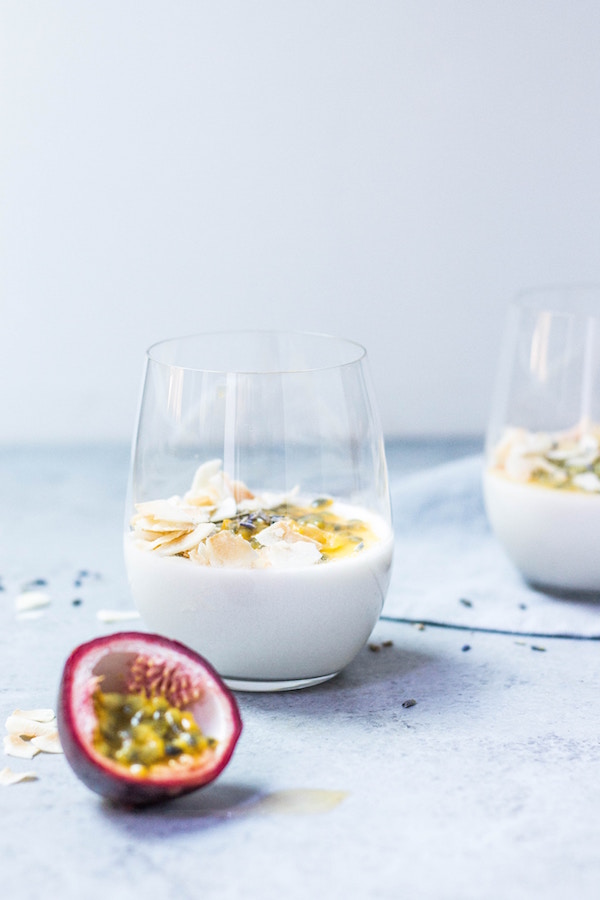We’ve all heard the phrase “You are what you eat.”
And most of us understand this when thinking about our general health and food’s contribution to it. But food actually contributes to an aspect of your health you may not have considered: quality of sleep.
The truth is you can eat specific foods for sleep so that you are less likely to be tossing and turning all night with insomnia. Let’s take a look at some of the food options that can improve both your sleep quality and duration.
Chamomile tea
Perhaps you grew up drinking a glass of warm milk before bed to help you fall asleep? As an adult, you may have moved on to a cup of warm chamomile tea, known for its calming properties. If not, you are missing out on an easy-to-add sleep food. Studies have shown that drinking a warm cup of chamomile tea 30 minutes before bedtime can help to induce sleep. This may be due to due to a flavonoid that binds to receptors in the brain, reducing brain activity and producing a calming effect.
Cherries
Cherries are also known for their sleep-inducing effects. They provide a natural source for melatonin, a hormone that helps regulate the sleep-wake cycle. Drinking tart cherry juice has been found to improve both sleep quality and duration. In 2014, researchers conducted a study that found that drinking tart cherry juice twice a day for two weeks helped increase sleep time by nearly 90 minutes among older adults with insomnia. Bonus – tart cherry juice also is loaded with antioxidants, great for immunity and healing.
Food rich in magnesium
 Magnesium plays an important role in helping you sleep. Even a small lack of it can impact the brain’s ability to settle down at night so you can fall asleep. Higher magnesium levels can help induce a deeper sleep, and is especially true when taken together with calcium for better absorption.
Magnesium plays an important role in helping you sleep. Even a small lack of it can impact the brain’s ability to settle down at night so you can fall asleep. Higher magnesium levels can help induce a deeper sleep, and is especially true when taken together with calcium for better absorption.
While there are supplements you can take, there are some easy ways to get more magnesium in your diet. Try adding these foods:
- Milk kefir – it has a tranquilizing effect on the nervous system and is often chosen by those with sleeping disorders. Kefir has many other great health benefits.
- Leafy green vegetables – spinach, kale and others are great sources. Have a salad for dinner and make sure to include some of these greens.
- Almonds – a handful in the evening can keep bedtime food cravings at bay and help you settle down for the evening.
- Pumpkin seeds and wheat germ – while you’re having your salad for dinner, throw in some of either of these for an additional magnesium boost
Also on the list: raisins, bananas, avocados, dark chocolate…and many more.
Prebiotic foods
You’ve likely heard of probiotics…but what are prebiotics?
Prebiotics are the nutrients that help probiotics, or the good bacteria in your gut to multiply. They are found in fiber-rich food and act as a fertilizer for the probiotics that are already there. As they help your good bacteria grow, they improve the good-to-bad bacteria ratio. Inulin is one type of water-soluble fiber found in onions, garlic, leeks and asparagus that help feed the beneficial bacteria in your gut.
Researchers have found a significant effect from dietary prebiotics on rapid-eye-movement (REM) and non-rapid-eye-movement (NREM) sleep cycles. This creates the potential to positively impact your quality of sleep. Scientists now believe it is possible that a diet including prebiotics can help improve sleep as well as support the gut and promote brain/psychological health.
Good sources of prebiotics include: the skin of apples, bananas, onions and garlic, Jerusalem artichoke, chicory root and beans all contain prebiotics.
Foods with tryptophan
Most folks know that tryptophan is found in turkey – and is the cause of many a post-Thanksgiving dinner nap. So how does it work in the body?
For starters, tryptophan is an essential amino acid that acts as a natural mood regulator. Foods rich in tryptophan can create a natural calming effect, induce sleep, fight anxiety and even help burn body fat.
But tryptophan also has the ability to boost feelings of well-being, connection and safety by increasing serotonin, the feel-good hormone. Serotonin is the same calming chemical released when we eat those comfort foods that make us feel good (usually carbohydrates). By transmitting signals between nerve cells and altering brain functions, serotonin affects both mood and sleep.
Research has shown that tryptophan has natural sedative effects that can help you sleep better. It’s a natural, non-prescriptive remedy for better sleep – but for the greatest impact, take a supplement, since most foods don’t contain quite enough tryptophan for effect on their own.
If you do want to boost your sources of tryptophan through your diet, try some of these options:
- Cage-free eggs (especially the whites)
- Wild-caught fish, such as cod and salmon
- Organic, ideally raw dairy products, such as milk, yogurt, cottage cheese or raw cheeses
- Sesame seeds, cashews and walnuts
- Grass-fed beef or lamb and pasture-raised poultry
- 100 percent whole grain oats, brown rice, corn or quinoa
- Beans/legumes, including chickpeas and green peas
- Potatoes
- Bananas
The bedtime list
By making your bedtime or evening snack a combination of foods with melatonin, magnesium and protein, you’ll promote quality sleep and avoid waking up in the middle of the night. Some good options include:
- Half a banana with almond butter on a slice of sprouted grain bread
- Hummus with carrots, cucumber or celery
- Apple chips or crackers with almond butter
- Proteins, such as turkey
- A small handful of cashews, 1/4 cup dried fruit with some seed-based crackers
- Gluten-free oatmeal with honey and dark cherries
- Small glass of warm goat’s milk kefir with turmeric and a dash of cinnamon
- Chamomile tea
- Small glass of tart cherry juice
If you’ve addressed other reasons you aren’t sleeping well, such as your mattress, sleep environment and counter-productive habits, consider adding one or more of the “sleepy foods” to your diet. Here at Rest Refreshed, we’ve tried many of these…and found that they do in fact help us sleep better.
Sources used in this article:
http://www.mercola.com/
http://www.draxe.com/
